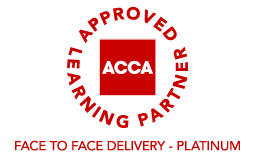A career in finance is rewarding. Professionals in investment banking, financial analysis, consultancy, and accounting tend to command high salaries. But beyond the substantial income, professional growth, high-value work, and job security also contribute to the appeal of this career.
Not all professionals, though, have access to lucrative opportunities. Those who have usually completed the best finance qualification for their career.
Why Finance Qualifications Matter
A degree says you’ve studied finance, getting your foot in the door. Professional qualifications, on the other hand, say you can do finance (and do it well), clearing the ladder for you to climb.
Like most career paths, advancement in finance depends on your qualifications. Qualifications convey deeper expertise and leadership potential, giving your application an edge over other job seekers. They also open doors to global opportunities since international organizations recognize certain qualifications.
Among them are Chartered Financial Analyst (CFA), Certified Public Accountant (CPA), Certified Financial Planner (CFP), and Association of Chartered Certified Accountants (ACCA).
What are the top finance qualifications for advancing your career?
What Is the Best Professional Qualification in Finance?
Whether you’re planning to go into accounting, banking, or financial management, the right financial qualifications give you an advantage. Some qualifications are also necessary for the performance of certain roles as part of industry compliance.
Here, we list some of the industry’s best to guide you through learning how to choose a finance certification.
1. CFA
Chartered Financial Analyst, or CFA, is a globally recognized credential administered by the CFA Institute. A CFA qualification proves your technical competence, boosting your credentials and presenting you with better opportunities. People who have achieved this qualification tend to earn higher salaries and receive impressive compensation packages.
But who should get it?
The CFA qualification is the highest level of qualification for investment management professionals. If your finance career path guide indicates investment analysis or wealth portfolio management, work toward a CFA.
You’ll need a bachelor’s degree or professional work experience; part-time work does not qualify. You also need to pass three exams. The average completion time for this program is three to five years.
2. CPA
Being a Certified Public Accountant, or CPA, is a qualification for accounting and finance professionals. If you’re pursuing a career in public accounting, corporate finance leadership, or controllership, you’ll need a CPA qualification.
You’ll gain in-depth financial accounting and reporting knowledge under generally accepted accounting principles (GAAP). You’ll also learn about business taxation, strategic planning, risk assessment, internal controls, and audit and attestation procedures.
On average, CPA completion can take 18 months to two years.
3. ACCA
The Association of Chartered Certified Accountants (ACCA) qualification is recognized in more than 170 countries. This global recognition means you can start a career or excel in any finance position, almost anywhere in the world. With this certification, you can pursue jobs in accounting, auditing, or financial management.
The minimum entry requirements for ACCA vary, depending on your location. For example, you need a university diploma to qualify for ACCA registration in the UAE. If you’re a university graduate, you might claim exemptions from some exams.
If you’re just starting out in your finance education, the Foundation in Accountancy (FIA) route is a good starting point for pursuing an ACCA qualification.
To transfer to ACCA, you need to pass the three Applied Knowledge papers and advance to the Applied Skills level papers of ACCA.
On average, completion of an ACCA certificate can take a minimum of three years.
Other qualifications include Certified Financial Planner (CFP), Chartered Alternative Investment Analyst (CAIA), Financial Risk Manager (FRM), and Certified International Investment Analyst (CIIA).
Which Qualification Is Better?
What about comparisons among finance qualifications? How do these credentials fare against each other: CFA vs. ACCA vs. CPA vs. MBA?
CFA is the gold standard in finance qualifications. Like the ACCA, it’s a credential that can take you anywhere in the world. If your goal is to be in investment management, CFA would be the preferred route. But if your career path focuses on accounting or auditing, an ACCA qualification is the way to go.
A Master’s in Business Administration (MBA) is costly, even for a one-year program. While an MBA looks impressive on a resume, it’s not typically a requirement for finance positions. However, CFA, ACCA or CPA qualifications are usually required.
What you choose ultimately depends on your career aspirations.
What Degree Is Best for a Career in Finance?
Which finance course is best?
You have several options, one of which is a degree in finance. A finance course gives you a solid foundation for different roles. You’ll gain an understanding of financial modeling, forecasting, and planning; you’ll also learn about capital markets, corporate restructuring, mergers and acquisitions, and other key financial literacies.
You can also major in accounting, economics, or business administration and management. If you’re interested in global markets and trade, consider an international business course.
If you want to get a head start on accountancy as a career, our Jumpstart program provides a good training ground for high school leavers. This program is designed to help you clear your first four ACCA papers and achieve an ACCA Diploma in Accounting and Business.
Map Out Your Finance Career With Phoenix FT
We provide a clear path toward careers in finance and accounting. Phoenix Financial Training tutors are full-time employees and always available to support you through customized notes for your specific course, regular check-ins, and online communications.
Our online financial training courses are also professionally produced (not simply recorded as a live class), particularly for online learners, ensuring you’ll learn in the best possible environment.
As the longest-standing Platinum ACCA provider in the region, Phoenix FT ensures the highest standard of education, excellent student support, and high pass rates.
Contact us today for more information on finance courses and qualifications.



